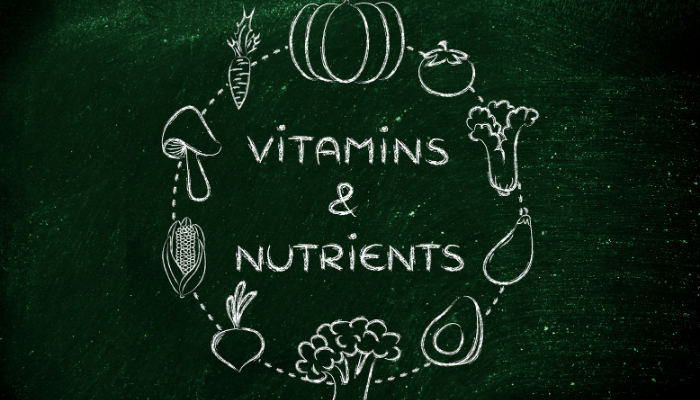Did you know that there are 7 essential nutrients that the body can’t make in sufficient quantities?! A nutrient is anything that provides nourishment that is essential for growth and the maintenance of life. While there are many nutrients that are good for us, there are a few that we should pay special attention to.
Water
You can’t last for a few days without water even if you tried, and that’s because water is essential for every system in our body to work properly. Water makes up 60% of the human adult body, so it makes sense that our bodies rely on it for survival. Drinking water throughout the day and eating foods with a high water content is super important when it comes to hydration. So drink (or eat) up!
Carbohydrates
There is this common misconception that carbohydrates are fattening and can often lead to weight gain, but carbohydrates are actually the body and brain’s main source of fuel. In the body, carbs are broken down into glucose, which is then used by your cells to make sure you are staying fueled.
Protein-Amino Acids
Protein is essential for good health. It plays an integral role in forming muscles to create new enzymes and hormones. Protein is made up of long chains of amino acids, which are the building blocks of cells. Amino acids turn over quicker and regenerate more slowly as someone ages. That is why it is so important to make sure you are eating a balanced diet filled with various protein sources. Keep in mind that while animal protein provides all essential amino acids, plant proteins do not, so if you are a vegetarian you should eat a variety of plant protein sources to ensure you are getting all essential amino acids.
Fat
While dietary fat has earned a bad reputation due to its association with body fat, healthy fats are actually really good for you. Fat is another essential nutrient that boosts the absorption of vitamins and minerals that are meant to protect the body. To reap the benefits of fats, it’s important to pay attention what types of fats you are consuming. Trans fats, which are found in many processed foods and baked goods, increase the risk of heart disease and should be eaten rarely. Unsaturated fats, which can be found in natural sources, protect the heart and aid in the prevention of cardiovascular disease.
Vitamins
Vitamins are organic compounds and essential micronutrients that the body needs in small amounts. There are several essential vitamins, including Vitamin A, Vitamin C, Vitamin D, Vitamin E, and B Vitamins. There is no singular food that provides every essential vitamin, so a diverse and healthy diet is needed to ensure that you are getting all the vitamins your body needs. Taking supplements can be beneficial if necessary, but it is definitely possible to get all of your vitamins naturally through your diet.
Minerals
There are seven essential minerals, including sodium, iron, potassium, calcium, magnesium, zinc, and phosphorus. Calcium, which is essential for bone health, muscle and nerve function, and circulation, can be found in our bones and teeth. Sources of calcium include dairy, leafy greens and fish like salmon. While sodium can get a bad rep, it plays an integral role in the functionality of our nerves and muscles. It should be noted that sodium should be consumed carefully and in moderation.
Omega-3 Fatty Acids
As previously mentioned, unsaturated fats are important for your body as they provide essential fatty acids that your body cannot make. One of the most well-known unsaturated fats is omega-3 fatty acids, which are a family of polyunsaturated fats that you must get from your diet. Omega-3 fatty acids have been shown to fight depression, reduce the amount of fat in your liver, lower blood triglycerides, and help prevent asthma. Eat foods like salmon, flax seeds, chia seeds and walnuts to ensure that you’re getting your fair share of omega-3’s.


Recent Comments